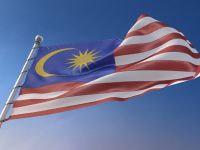Thousands of pro-Taliban demonstrators set fire to the abandoned US embassy in Kabul Wednesday, as the ruling militia's grip on besieged and isolated Afghanistan appeared increasingly shaky.
With a massive US military presence within striking distance of the Central Asian country, an opposition offensive in the rebel-held north gained momentum with reports here suggesting the Taliban were forced to send reinforcements to the front lines.
For the second day running, the anti-Taliban Northern Alliance, bolstered by indications that it has the support of a US-led global anti-terror coalition, claimed fresh territorial gains.
The Taliban acknowledge protecting Saudi-born extremist Osama bin Laden, accused of masterminding the September 11 suicide attacks against the US that claimed nearly 7,000 lives, and refuse to surrender him.
Since the Taliban "made the decision to harbor terrorists [and] the mission is to root out terrorists, to find them and bring them to justice," US President George W. Bush said Tuesday, the best way "is to ask for the cooperation of citizens within Afghanistan who may be tired of having the Taliban in place."
Amid chaotic scenes in the Afghan capital, demonstrators chanting "Death to the United States," "Death to Bush" and "Long Live Islam," broke into the embassy compound and set fire to abandoned cars, creating a huge blaze that spread to outbuildings but not the main structure.
The embassy has been vacant since 1989 -- well before the Taliban seized Kabul in September 1996.
Firefighters eventually brought the blaze under control after running battles with protestors left 12 security officers wounded, Kabul police chief Mullah Mohammad Yunus said.
"The United States wants to burn our country," one jubilant demonstrator told AFP, "so we burned their embassy."
As the Taliban maintained their hard-line stance, tens of thousands of Afghan civilians headed for the country's sealed borders in fear of US attacks.
Despite a warning Tuesday from UN Secretary General Kofi Annan that Afghanistan's neighbors must open their borders and accept refugees, fears were growing over the plight of up to 20,000 people stuck in worsening conditions near the Chaman crossing on the western Pakistani border.
UN officials said there was a growing risk of epidemics among refugees already weakened by hunger and dehydration, and a spokesman said there were reports of diarrhea outbreaks.
"If that spreads, then diarrhea in these circumstances is a real killer, especially for children," the spokesman warned.
The military, diplomatic and financial stranglehold on Bin Laden and the Taliban tightened meanwhile, although top US officials Tuesday played down expectations of an imminent major military strike.
NATO defense ministers met in Brussels to discuss how they can help Washington in the anti-terrorism fight.
Russian Defense Minister Sergei Ivanov was expected to join the meeting two days after Moscow -- a decade ago NATO's top security threat -- and former Soviet republics offered an unprecedented level of cooperation to Washington.
Wednesday's meeting was to have been held over two days this week in the southern Italian city of Naples, with the main focus on the Balkans, but the venue and agenda were changed after the September 11 attacks.
The 19 NATO allies declared the day after suspected Islamic extremists flew hijacked airliners in the World Trade Center and the Pentagon on September 11 that they would regard the blitz as an attack on them all.
Jordan's King Abdullah II meanwhile flew to Washington on the first visit to the US by an Arab head of state since the attacks, amid Arab reluctance to join the global anti-terror coalition.
Abdullah, who is scheduled to meet US Secretary of State Colin Powell Thursday and Bush on Friday, has strongly condemned the attacks and described the anti-terror struggle as "an international responsibility which requires a coming together of all efforts."
But echoing the views of most Arab leaders, he stressed that eradicating the roots of terror must be linked to greater efforts, spearheaded by the United States, to resolve the 53-year-old Arab-Israeli conflict.
Authorities in Karachi, meanwhile, banned a planned anti-terror rally, fearing it could trigger clashes with militants opposed to official Pakistani support for the US.
It would have been Pakistan's first mass rally to express shock and anger at the September 11 attacks on New York and Washington.
Pakistan, whose support for Washington is under question because of its close links with Afghanistan and the Taliban, joined the US-led financial campaign by freezing the accounts of two groups on a Bush blacklist of people and organizations funding terror.
The Central Bank here announced it had ordered banks to freeze the accounts of Harakat ul-Mujahedin, which fights Indian rule in Kashmir, and the Al Rashid Trust, which provides financial and legal assistance to jailed Muslim militants around the world.
The Group of Seven major industrialized states took up Bush's appeal by announcing on Tuesday a global campaign to disrupt terrorist networks.
"Since the attacks, we have all shared our national action plans to block the assets of terrorists and their associates," the G7 said in a statement.
China's foreign ministry said Beijing backed the fight against terror financing, as France, Germany, Liechtenstein and Switzerland also pledged help in identifying and blocking suspect money.
In the worldwide probe into Bin Laden, Spain announced Wednesday that it had dismantled a "terrorist cell" linked to his Al Qaeda network.
The news followed arrests since September 11 in France, Belgium and the Netherlands of others allegedly part of Bin Laden's organization, believed to comprise mostly non-Afghan Islamic militants -- ISLAMABAD (AFP)
© 2001 Al Bawaba (www.albawaba.com)







